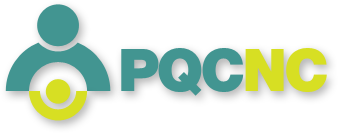September has been a month of planning and preparing for the October all day learning session in Chapel Hill. Teams are preparing for Phase III of the initiative which will include taking what we’ve learned in Phase I and II and honing in on specific areas to not only increase our exclusive human milk rates in the state, but also to determine best practices based on our results in Phase I and II.
Updates
We were reminded this month that we are not alone in the work we are doing - all across the country teams are focusing on similar initiatives. As a result, Breastfeeding rates continue to rise, with increases of about 2 percentage points in breastfeeding initiation, and breastfeeding at 6 and 12 months. Breastfeeding initiation increased from 74.6% in 2008 to 76.9% in 2009 births. This improvement in initiation represents the largest annual increase over the previous decade. Breastfeeding at 6 months increased from 44.3% to 47.2%; breastfeeding at 12 months increased from 23.8% to 25.5%. More here…
Where: Carolina Club / George Watts Hill Alumni Center, 150 Stadium Drive, Chapel Hill, NC
When: Tuesday, October 30, 2011 9:30 - 3:30
What: Up to three team members - all three primary team members (physician champion, nurse champion, senior hospital administrator) are encouraged to attend. Lunch and materials will be provided at no cost.
How: Register here
In addition to continuing the day to day work of collecting and analyzing data and planning and executing PDSAs teams took a moment to check up, check in, and review looking at a variety of areas including -
1) Who is on your team - who are the folks engaged and contributing to the work of the team? Do you have a physician leader? A nursing leader? An executive leader? A family leader? Who looks at the data as it's collected and are they part of the team effecting change?
2) Celebrate success - an area of the action plan that you've focused on, addressed, and what success looks like.
3) Refocus on one lingering challenge - an area of the action plan that you've focused on, but on which you just can't seem to get traction.
4) Stop five random folks in your unit - are they aware that your unit is participating in the initiative? Do they understand the goals of the initiative?
Some highlights from last months learning session are available online including a presentation on the business case for lactation services. More here…
The EHM Well Learning Session was extremely well attended (18 teams) and had several memorable moments, not the least which was the loss of power in the afternnon session which offered Greta Blythe and Marty the opportunity to speak and facilitate in a cozy, dark, warm and intimate environment. You all were incredibly tolerant and most inspiring. Centers discussed at length opportunites to further improve skin to skin time in the golden hour. Strategies included eliminating procedures previously considered "standard" (baths, shots etc), reminding staff that this period does not require the baby be put immediately to the breast, but rather skin to skin, and focused conversations between maternal and nursery nurses regrading the goal of skin to skin for one hour. Several centers remarked on challenges related to limiting separation of mom and baby, especially for procedures and care in their facilities. Some centers have expereinced this challenge and after long periods are seeing success in breaking down traditional models of newborn care that have led to such separation.
A fantastic mom gave a very interesting view of her introduction to breastfeeding, including an aggrsssive effort to start breastfeeding immediately after birth which she found excessive. As it was in the NICU session, we were all reminded of the value having a regualr particpating family member on our human milk team might be.
Keep up the great work everyone. The efforts to improve practice and deal with key drivers outlined in the action plans is clearly occuring. Critical also is that we develop methods at our hsoptials to enter the data that supports the great work being done!
Currently 33 hospitals are collaborating to increase the exclusive use of human milk for the term newborn. This month these teams have been collecting baseline data in order to understand the current practices and rates of exclusivity in preparation for the upcoming Learning Session in May.
